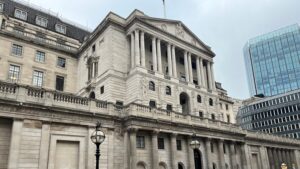According to the Office of National Statistics, gross domestic product second quarter estimates show an increase of just 0.2% during the period, down on the 0.5% increase in Q1.
The Office of National Statistics said the increase was driven by the services and construction sectors. However, production and agriculture also declined.
Ian Spreadbury, manager of Fidelity’s Strategic Bond Fund said adverse feedback seemed to be in place where QE had led to higher food and commodity prices, which had acted as a tax on growth. Added to this was a drop in consumer confidence brought on by concerns over European and US debt.
“The outlook for growth has definitely deteriorated recently,” he said. “Some of this may be a consequence of QE not working as fully intended.”
Spreadbury believes a solution to save the euro would probably be reached though he did not see any solution appearing soon.
“At the margins, the risk of a euro break-up have definitely increased,” he said. “The downside risk to credit has also increased because of the uncertainty and I expect bouts of market volatility to continue.”
On the positive side, he says shareholders are no longer placing as much pressure on companies to spend their cash buffers in the form of mergers and acquisitions, increased dividends or capex – all of which would be credit-negative for bond investors.
“In this uncertain environment, we detect a pressure instead for companies to retain strong balance sheets, which is good for credit,” he said.
Spreadbury’s reaction was to keep his Strategic Bond Fund “broadly neutral credit beta risk”, after being long on risk three months ago. His funds continue to be biased towards defensive credits and remain underweight financials in order to avoid over-concentration of risk, given his macro outlook.







